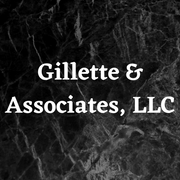
You may have heard the expression "cooking the books." This phrase is used when a company falsifies bookkeeping records or fails to record transactions properly to overstate the business's profitability. Here’s what you need to know about this illegal practice.
Why Would a Company Cook the Books?
Managers, officers, or owners of a company may cook the books to give an inflated view of the company's financial health. Falsifying the numbers can help secure bonuses for executives, reduce tax liabilities, and ensure investors continue to fund the company.
How Do Businesses Do It?
Accelerating Revenues
With some bookkeeping tricks, businesses can cook the books in several ways. They can accelerate revenues by logging a lump-sum payment as current sales when services or goods are actually supplied over several years. They can also engage in "channel stuffing" by shipping goods that have yet to be sold to their distributors. The business then records the transaction as sales now, rather than waiting until the distributor sells the items.
Misrepresenting Expenses
Another method of cooking the books is by recording expenses over a number of years rather than in the current period. A business may also record recurring expenses as nonrecurring, fail to record lease payments on a balance sheet, or decrease its pension expense to make the company look more profitable than it is.
 Hiding Liabilities
Hiding Liabilities
In the case when there is a parent company, and there are several entities under it, a company may bury debts and liabilities on the financial statements of only one of the subsidiaries. These transactions and debts would be hidden from investors because they aren't listed in the bookkeeping and financial records of the parent company.
Why Is Cooking the Books Illegal?
Companies subject to the Securities Exchange Act are legally required to keep books that accurately reflect payments and transactions. It's also required that companies have internal controls that assure the management isn't improperly handling the business's assets. Financial misrepresentation, fraud, and other charges can be brought against those who are involved in cooking the books.
Keep your bookkeeping above board and accurate by hiring the professionals at Gillette & Associates in La Crosse County, WI. They offer accounting services, cash flow and budget analysis, financial projections, payroll services, tax preparation, IRS representation, and many other financial services to businesses throughout the Coulee Region. Call (608) 784-8355 to reach these knowledgeable, trusted financial experts, or visit their website to learn more about their services.
About the Business
Have a question? Ask the experts!
Send your question

